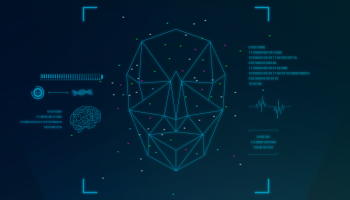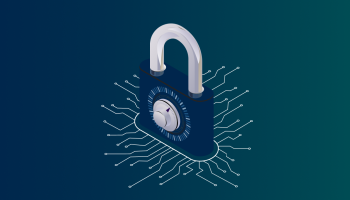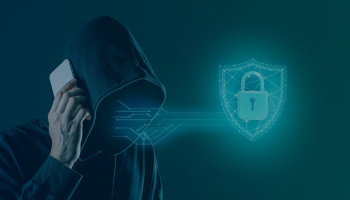In an age where every click, like, and search becomes part of your digital footprint, it’s no surprise that more people are asking the same question:
Can I disappear from the internet without deleting everything?
The short answer is: Yes—partially.
You can reduce your visibility, protect your privacy, and take back control over your information without deleting all your accounts or abandoning the internet entirely.
This guide explains how to significantly reduce your online presence, limit how you’re tracked, and prevent your personal data from being easily found—all while still using the internet in a practical, secure way.
Why Disappearing from the Internet Matters?
Online exposure doesn’t just mean annoying ads. Your digital footprint can be used for:
- Behavioral tracking
- Data profiling
- Identity theft
- Job screening
- Harassment or doxxing
Whether you’re concerned about privacy, security, or simply value being left alone, minimizing your online presence gives you more control over who sees your information—and how it’s used.
1. Stop Giving Out Real Information by Default
Many websites and apps ask for personal details—real name, phone number, location—even when they don’t truly need them.
What you can do:
- Use a throwaway email or email alias for signups.
- Don’t use your real name unless legally required.
- Enter vague or fake details for non-essential services.
- Use temporary phone numbers when registering for one-time access.
This won’t remove old data, but it prevents new personal information from spreading across more platforms.
2. Remove Your Data from People Search Sites
Your name, phone number, address, relatives, and more can often be found in seconds on data broker sites like:
- Spokeo
- Whitepages
- BeenVerified
- MyLife
- Intelius
These companies gather public records, online profiles, and past activity, then sell it or display it.
How to take action:
- Visit the sites and submit opt-out requests manually.
- Use data removal services like DeleteMe or Incogni to automate the process.
- Regularly recheck these sites—your info may reappear over time.
This step is key to reducing your online footprint from a public search standpoint.
3. Deactivate or Minimize Old Accounts
You don’t need to delete every account—but you should deactivate or strip down old ones you don’t use.
Focus on:
- Forums you no longer post on
- Old blogs or comment sections
- Outdated social profiles
- Shopping accounts you haven’t used in years
Delete posts, update names to aliases, or replace bios with blank info where possible. Many sites offer “deactivate” or “hide account” options without fully deleting them.
This helps break the chain of how your name or identity appears across multiple services.
4. Limit What Search Engines Know About You
Search engines like Google store a lot more than your search history—they index everything connected to your name that’s public.
What you can do:
- Google yourself and identify what needs to be removed.
- Use Google’s removal tools to request takedown of outdated or sensitive results.
- Turn off search personalization in your Google settings.
- Use privacy-first alternatives like DuckDuckGo or Startpage for future searches.
Search engines are often the gateway to your digital presence—this step cuts off the most common discovery route.
5. Lock Down Social Media (Without Deleting It)
You don’t have to delete your accounts to disappear from public view—you just have to make them private and less searchable.
How:
- Set profiles to private and limit visibility to friends only.
- Remove your name from public bio sections.
- Delete old posts, photos, or check-ins that include personal details.
- Change your profile name slightly (e.g., initials only).
You’ll still be able to use social media—just without giving away your full identity to anyone who searches your name.
6. Use Encrypted Messaging and Private Email
Communication apps and email platforms are a major part of your online life. Many leak metadata (like who you talk to and when), even if your messages aren’t read.
What to switch to:
- Use Signal or Telegram for private, encrypted messaging.
- Use ProtonMail or Tutanota instead of Gmail or Yahoo.
- Stop using email addresses tied to your real name for casual use.
This way, your conversations and email data are protected—even if someone is monitoring network traffic or scanning your email provider.
7. Turn Off Location Tracking and Voice Assistants
Your phone can reveal a lot about your behavior—even when you’re not actively using it.
To reduce background data leaks:
- Turn off location tracking when not needed.
- Disable or limit access to Google Assistant, Siri, or Alexa.
- Review and restrict app permissions regularly.
- Use devices that allow more privacy control (like privacy-focused Android phones).
You’ll maintain full functionality—but limit how much of your daily routine is being recorded or sold.
8. Block Trackers and Use Private Browsers
Even if you don’t post personal information, trackers follow you across websites and build profiles behind the scenes.
Try this:
- Use browsers like Brave or Firefox with Enhanced Tracking Protection.
- Install tracker blockers like uBlock Origin or Privacy Badger.
- Use search engines that don’t log queries (DuckDuckGo, Startpage).
- Regularly clear cookies or browse in temporary “containers.”
This limits the digital fingerprints you’re leaving behind—and makes it harder for sites to connect your browsing to your identity.
Why Disappearing Completely Is Almost Impossible?
Even after taking all these steps, some data will remain:
- Government records
- Old data stored by companies
- Archived content you can’t access
- Info shared by others (tags, mentions, articles)
Total erasure isn’t practical—but reducing your visibility, stopping new leaks, and minimizing public searchability is entirely possible.
You’ll still be online, but much harder to find, track, or exploit.
How a VPN Helps You Stay Invisible in Real-Time?
Even with the best privacy practices, your devices still send data across the internet. And without extra protection, that traffic can be logged by:
- Your internet provider
- Public Wi-Fi networks
- Corporate firewalls
- Government surveillance systems
This is where a Virtual Private Network (VPN) becomes essential.
A VPN masks your IP address, location, and real-time internet activity—even from your ISP. That means your search history, downloads, and website visits stay private and unlogged.
Final Thoughts
OrionVPN is specifically designed for users who care about privacy without sacrificing usability. It encrypts all traffic, blocks tracking at the network level, and keeps your online sessions completely private—even from your home network or local provider.
Disappearing from the internet starts with removing what’s already out there—but it only works long term if you stop new data from leaking. OrionVPN gives you that final layer of protection, turning private browsing into truly private living.




